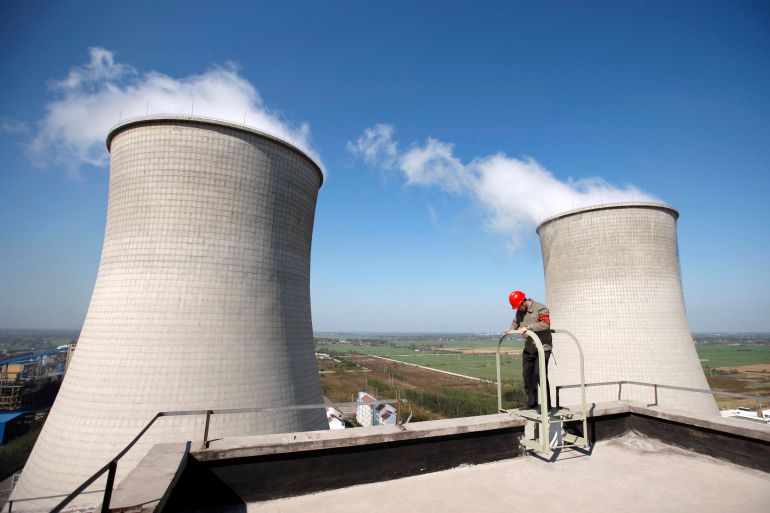
China provinces top list of regions at risk from climate change
Jiangsu, Shandong and Hebei ranked among the areas most vulnerable to rising water levels and extreme weather.

China is home to more than three-quarters of the regions most at risk from climate change, with some of the world’s most important manufacturing centres threatened by extreme weather, according to a new report.
China’s eastern Jiangsu province ranks as the world’s most climate-vulnerable region, followed by Shandong, Hebei and Henan, according to the report released on Monday by climate risk specialists XDI.
In total, China is home to 16 of the world’s 20 most at-risk regions, according to XDI.
“We’re already feeling the significant impacts of weather events around the world, and they will only increase,” XDI Chief Executive Rohan Hamden told reporters.
“Finally, we just want to make sure that every investment decision is made in a climate-resilient way.”
After China, the United States is home to the most at-risk areas, according to XDI.
Florida, which is ranked 10th globally, is the US state most under threat, followed by California and Texas.
Nine areas of India also made the top 50 at-risk regions. Other major economic centres in the top 100 include Argentina’s Buenos Aires, Vietnam’s Ho Chi Minh City, and Indonesia’s Jakarta.
In Europe, Germany’s Lower Saxony region is deemed the most vulnerable to climate change. Italy’s Veneto region, which contains the city of Venice, is ranked the fourth most at-risk region in Europe.
XDI’s analysis assessed 2,600 territories globally, modelling damage from 1990 to 2050 based on the “pessimistic” scenario of a 3 degrees Celsius (5.4 degrees Fahrenheit) rise in global temperatures by the United Nations’ Intergovernmental Panel on Climate Change (IPCC).
Researchers said the findings highlight the massive potential economic fallout from climate change and the need for governments to ramp up efforts to reduce carbon emissions and adapt to extreme weather events.
“Folks who are looking to build a factory, establish a supply chain that involves those states and provinces are going to think twice about where they are,” said Karl Mallon, XDI’s head of science and innovation.
Investors may apply “risk pricing” to vulnerable regions or “try and find safer havens”, Mallon said.
“There is a lot to be done to work out which areas in the world are potentially adaptable and defendable, and which are probably the areas we will see abandoned in due course,” he said.







